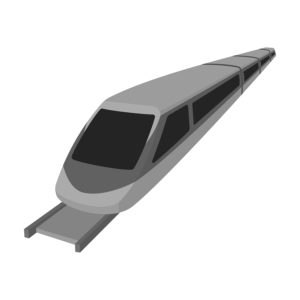For many, Elon Musk’s Hyperloop One is still a thing of science fiction. After all, it’s an underground tube that will transport people at 700 miles per hour “using magnetic levitation and an electric motor in a vacuum environment.” While it’s still early in development and will require much more work, Musk has gotten “verbal approval” on a Hyperloop to connect New York, Philadelphia, Baltimore, and Washington, D.C. — in 29 minutes. It’s completed its first round of successful testing and there are already multiple manufacturing plants in which professionals are pushing the project ever closer to reality.
Manufacturing innovation
The Hyperloop is likely to make waves in more sectors than simply transportation. According to a Hyperloop One press release, the company “is set to empower manufacturing and its adjacent sectors with the potential for increased value creation, faster lead times and lower costs when compared to traditional alternatives.” This kind of disruption could cause many changes for manufacturers and their abilities to deliver cargo and products to end-users more quickly than ever while reducing inventory levels as well as carbon emissions.

Although Musk came up with the idea in 2013, two companies were already pitted against each other by 2016: Hyperloop Technologies and Hyperloop Transportation Technologies (HTT). They’ve both deviated from Musk’s original plan for the tube to be propelled by air and introduced the magnet levitation method we’re hearing about today. Hyperloop Technologies opened a plant last year in Las Vegas to create the Hyperloop prototype, DevLoop. In addition to engineering the tube itself, manufacturers in the development process have been working on infrastructure. Earlier this year, HTT began work on a passenger capsule in full scale, which it will unveil next year.

Quick commute
Whereas distance once inhibited some from venturing far for work, Hyperloop could open manufacturers up to larger talent pools. With time-saving transportation of this type, manufacturing job creation could boom and the industry could become more competitive as more skilled professionals gain access to move to and from their places of work at much higher speeds.
Will you be flying through a vacuum tube on your way to work soon? Or could the way your manufacturing plant receives raw materials speed up to 700 mph? Only time will tell. While HTT and Hyperloop Technologies are said to be racing toward release dates in 2020, unless you live near a large metropolitan area like New York, Chicago, or L.A., you might have to wait a few more years.
